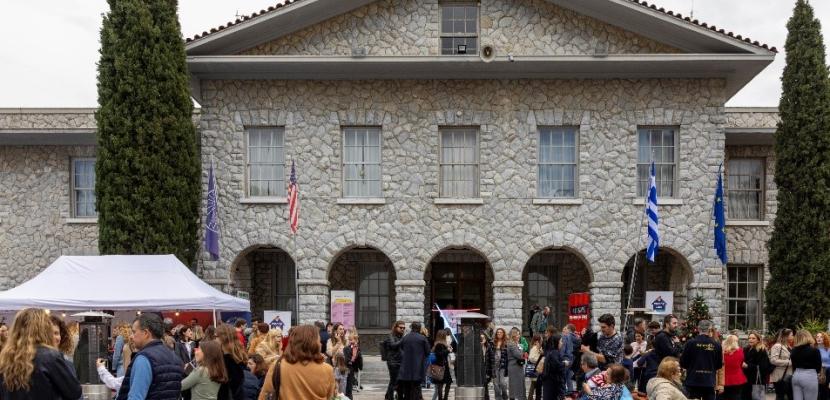
Waste Management in Anatolia College events

About this good practice
Large-scale events often generate significant amounts of waste, contributing to environmental degradation and resource depletion. Without proper management, this waste can end up in landfills, harming ecosystems and human health.
Anatolia College has developed a comprehensive waste management strategy to minimize waste generation and promote recycling and reuse during its events. This includes collaboration with various organizations for waste collection, redistribution of surplus food and recycling of paper and plastic. Additionally, Anatolia College has implemented measures to reduce its environmental footprint, such as transitioning to renewable energy sources and banning plastic bottle sales on campus.
The objective is to significantly reduce waste generation and increase recycling rates during large events, ultimately aiming for zero waste.
Targets include diverting a certain percentage of waste from landfills, increasing awareness among students, faculty and staff about waste reduction practices, and fostering a culture of sustainability within Anatolia College community.
The expectation is to create a model for sustainable event management that can be replicated by other institutions.
Resources needed
The project is led by 8 individuals from Social Responsibility Office, Maintenance Department, Security & Cleaning Services, Events Planning coordinators and educators. 50 students from the Green Ambassadors initiative are involved in tree planting, waste management projects and awareness campaigns.
Evidence of success
Anatolia collaborates with external organizations for waste management, like ANAKEM for construction waste collection, BOROUME for surplus food redistribution, ELDIA for recycling. Social welfare organizations like DESMOS facilitate the donation of technology equipment. Anatolia has reduced its environmental impact at large events. By banning the sale of plastic bottles and installing water coolers, 18,000 plastic bottles are saved per month. Since 2022, 600,000 plastic bottles have been saved.
Potential for learning or transfer
Anatolia College’s sustainability initiative offers valuable lessons for other regions or organizations seeking to adopt similar practices. Below are key elements and potential transfer factors:
-Internal Collaboration: A well-coordinated internal team is essential. Without collaboration between various departments (education, administration, social responsibility), it would be challenging to implement sustainability practices effectively.
-Engagement and Education: The involvement of students, staff, and the broader community is key. Engaging stakeholders through education (workshops, environmental campaigns) raises awareness and drives collective action.
-Partnerships with External Organizations: Partnerships with entities are crucial for handling specialized aspects such as waste collection. Similar partnerships are needed in any region aiming to replicate the initiative.
Obstacles and Challenges:
Initial Costs and Resources
Cultural and Institutional Resistance
Infrastructure Needs
Further information
Documents
Good Practice - Anatolia College.docx
Anatolia College_Good_Practice_Additional_Information.pdf
Website
Good practice owner
You can contact the good practice owner below for more detailed information.